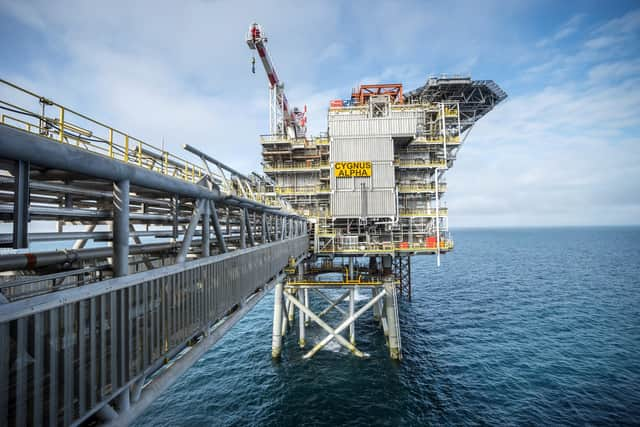Drones to measure emissions on North Sea platform
North Sea operator Neptune Energy is joining forces with not-for-profit organisation Environmental Defense Fund (EDF) for the collaboration to test a first-of-its-kind approach for measuring methane emissions from offshore facilities.
Drones, aircraft and methane-sensing technologies will be deployed on the Neptune-operated Cygnus platform to provide a close-up view of operations typical of an offshore facility.
Advertisement
Hide AdAdvertisement
Hide AdEDF will co-ordinate a team of international researchers that includes Scientific Aviation, a provider of airborne emissions sensing, and Texo DSI, a UK-based drone platform provider, to evaluate methods for quantifying emissions and prioritising mitigation actions.


The project aims to advance research into emissions of methane, which is a key focus for the offshore industry.
Methane, the primary component of natural gas, is a potent greenhouse gas. To meet the Paris Agreement climate goals, emissions need to be reduced from production.
Global investment firm The Carlyle Group, which is a shareholder in Neptune Energy, is supporting the project to help drive research learnings and improved standards across the industry.
Pete Jones, Neptune Energy’s vice-president of operations in Europe, said: “Neptune Energy already has one of the lowest methane intensities in the sector. But we want to go further and have set a target of net zero methane emissions by 2030. This study will help us identify where we need to take further action and how we can apply new measurement techniques across our global operated portfolio.”
Mark Brownstein of EDF said data transparency was paramount as the oil and gas sector looks to reduce emissions.
“Oil and gas companies have made commitments to tackle emissions, but you can’t just assert strong environmental performance. You must show it. Having credible data is the first step and we recognise Neptune Energy for valuing emissions reporting that is based on rigorous science.”
The study is due to commence in July with initial results expected in October. The outcomes will be published in a scientific peer-reviewed paper in 2022.
A message from the Editor:Thank you for reading this article. We’re more reliant on your support than ever as the shift in consumer habits brought about by coronavirus impacts our advertisers. If you haven’t already, please consider supporting our trusted, fact-checked journalism by taking out a digital subscription: www.scotsman.com/subscriptions
Comments
Want to join the conversation? Please or to comment on this article.